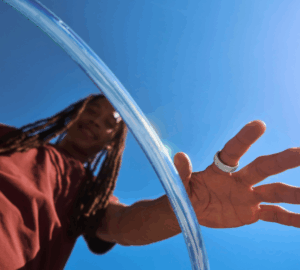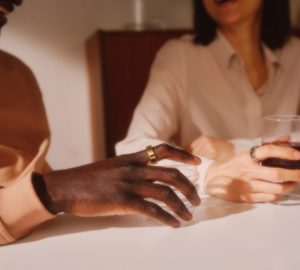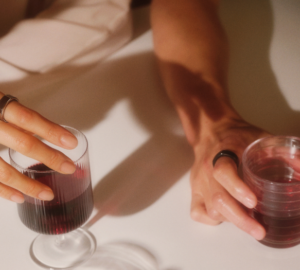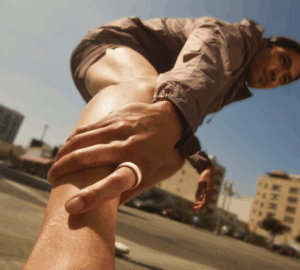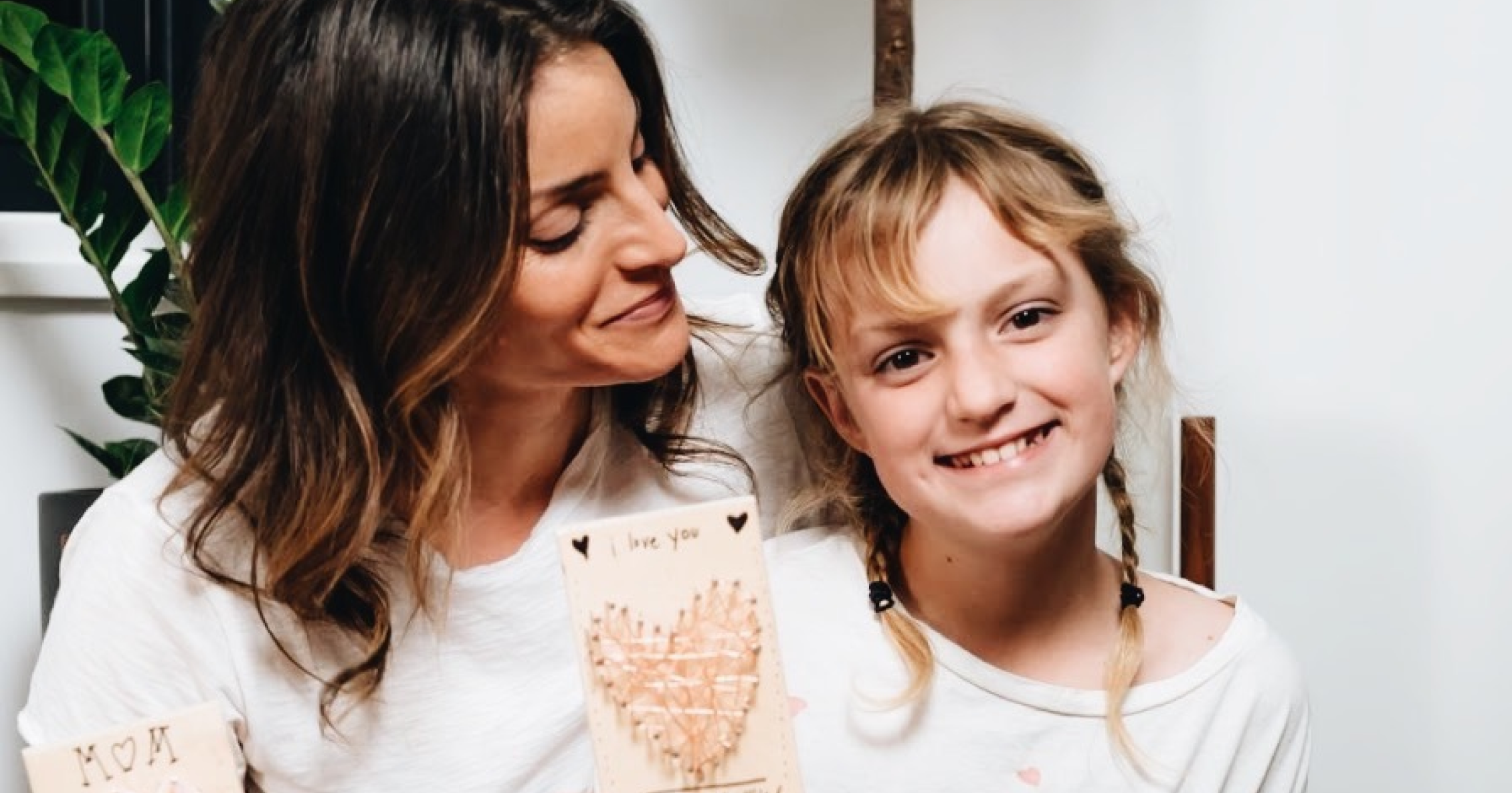Kacey is a Real Estate Broker in Southern California and a mother of two who has been using Oura for nine months.
—
Kacey & Oura
“My kids are nine and thirteen and have not been going to school because of the pandemic. I try to keep them actually focused on schoolwork and not just shut their laptop and play video games while I try to do my job, which is very unpredictable. I work seven days a week, and people ask me to write up offers, especially right now, at eight o’clock at night, on a Thursday when I should be getting ready to wind down. Or, you know, Sunday morning at 8:00 AM when I should be sitting in my pajamas and my family, I get a message — it’s very hard for me to find balance. Because of the pandemic, I felt like all of the places where I used to get support — school, the gym, and all of the places where I was able to find relief and recovery — and even the opportunities to bring balance in my life were taken away. It felt harder and harder to stay healthy.”

“That’s where Oura really helped. I’ve had my ring for nine months now. And I originally learned about it from a nutritionist. I just turned 41, and when I turned 40, I started to notice some changes in my sleep patterns, in my body weight, and in my ability to work out hard. And so I went to see a nutritionist to try and dial in my food. And he said, ‘We’ll talk about your food, but you’re already so healthy (Like kale and egg whites. I don’t eat gluten, dairy, or sugar). I actually don’t care that much about telling you about nutrition. The only thing I really want you to worry about is sleep.’ After that, he showed me his ring. He brought up his online profile and convinced me to get one. So I got the sizing kit and then ordered one for myself. I have worn it pretty much every single day, except for maybe two or three days, and I felt disappointed that I missed even those two or three days.”

Kacey: Motherhood, Work, & the Pandemic
“Everything really impacted my ability to focus and feel okay about spending time with myself, which I put at the very bottom. I think most moms put taking care of themselves at the very bottom. The pandemic really magnified how much time I didn’t have.
I really had to make changes and shift the way I approached work, family, and life. I used to not let my children spend too much time on screens. Like no video games and limiting TV time. But I had a mental shift. Everybody’s going through this year, and I decided I wasn’t going to feel like I’m a bad mom about screens. My kids were not really physically in school, my daughter was in fifth grade and only having school two hours a day, and my son only went in two days a week. So being okay with the fact that she might be in her room on her laptop, watching YouTube, or my son might be playing video games. And so I’d say that the shift that I had in my mind was letting go of all the things I was really tight about and just saying, ‘I have to be flexible this year and be more proud of myself or happy for my family, for the small accomplishments.’ If I was able to get our family out for a walk, a one-mile walk with the dogs, a sunset walk on the beach, or go have fun at the park with them for just a little bit of time — we do it. If they are just sitting in front of the TV while I work, that’s okay too.”


“Another shift I had to make was really trying to balance family time and work with my exercise. I’m lucky enough that my husband is actually a personal trainer, so he actually built a gym in our garage. I had no excuse to not exercise, uh, because it was literally in my home. But when I used to work out, I never valued sleep very much ever. I almost looked at it like a badge of honor that I could survive on five and a half or six hours of sleep. Oura quickly changed my mindset. I was always able to power through before. But as I shifted into my early forties, I really started to feel the detriment of being sleep deprived, chronically. Fitness is a part of my life. It’s part of who I am, but I started to notice my performance really degrade, and no matter what I always felt like I just couldn’t push myself as hard as I needed to, and my workouts were suffering. So, I started to really understand the importance of recovery during this whole last year, because I finally had the opportunity to do it.”

“I was at home more often working as a real estate broker. Our brokerage would not allow us into the office for a while. So it was working for my kitchen table. And so I guess the silver lining that came from it is that I was able to spend more time at home, be forced into kind of chilling out a little bit more, and also had a little bit of extra time. My perspective shifted for me, and I was able to think about things a little bit differently. I was able to relax myself and relax my stringent expectations of my children while taking the time to actually look at how my body was changing and how I could help it recover using Oura.”
Kacey’s Tips
- It’s okay to relinquish a little control: “I used to just figure I’m eating healthy. I’m focused. It doesn’t matter if I’m tired. It doesn’t matter if my body doesn’t feel like doing it, I’m going to push through this. And so using Oura really helped by telling me that I should wind down and/or take it easy on days where I normally wouldn’t have. I realized Oura is kind of like somebody watching out for me.”
- Powering through isn’t always best: “I had my children naturally. So I would say I’m probably the prime example of somebody who can power through something pretty difficult. But it really has taken me a while to learn how to listen to my body and recognize that sometimes rest is actually better for your body than a workout. That’s something Oura has really helped with.”
- Don’t let guilt take you over: “I think for moms specifically, there’s like a silent feeling of guilt about taking care of themselves. And then it almost feels selfish because your job is to take care of everybody else. The hardest thing I think about parenthood, besides the lack of personal time, is the loss of sleep because of guilt. And so Oura is a support for that, for that process and feeling good about making yourself a priority. I feel guilty pretty often. When I’m working, I feel like I’m not focusing on my family enough. And when I’m focusing on my family, I feel like I’m doing my clients a disservice. So it’s definitely a double-edged sword. Something that’s really worked for me is having protected family time. I think us moms have a habit of chronically multitasking and then feeling bad that we haven’t finished everything to the best of our ability. So don’t feel bad, just focus on one thing at a time and do a great job. It’s about giving each bucket in your life the time that it deserves, whether it’s your family, your job, or yourself.”







